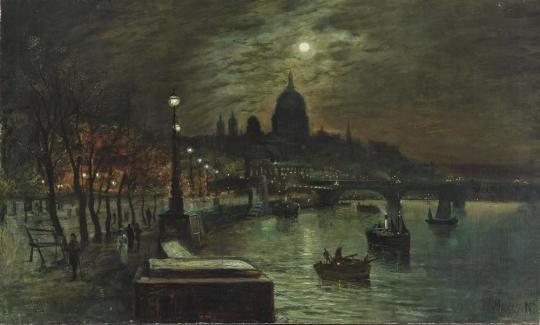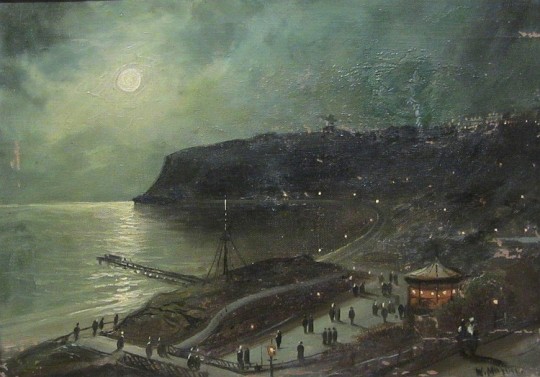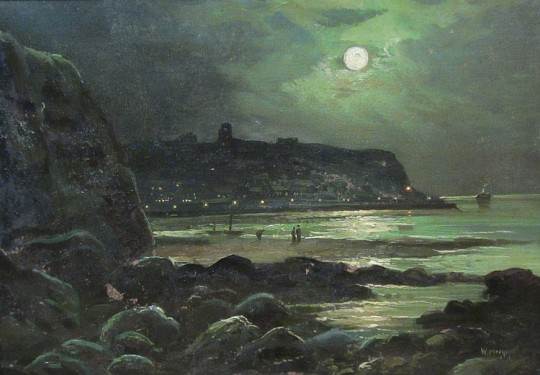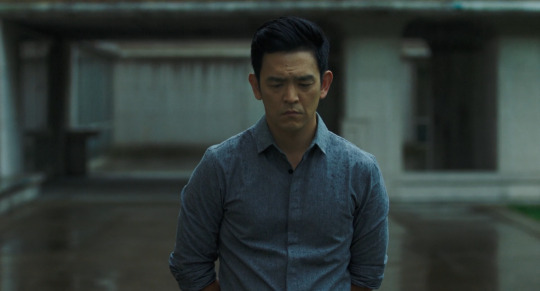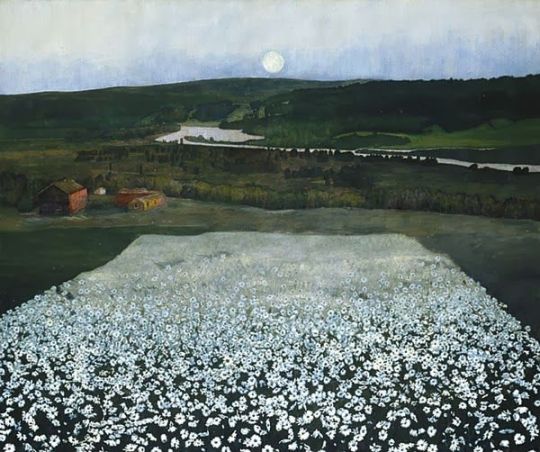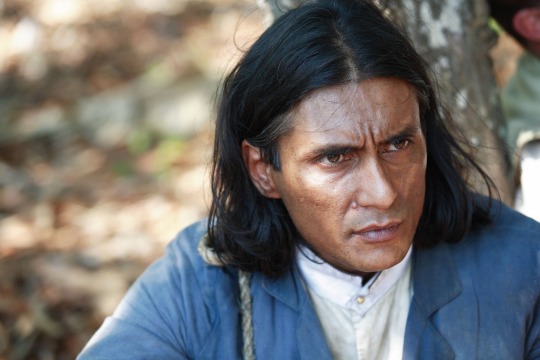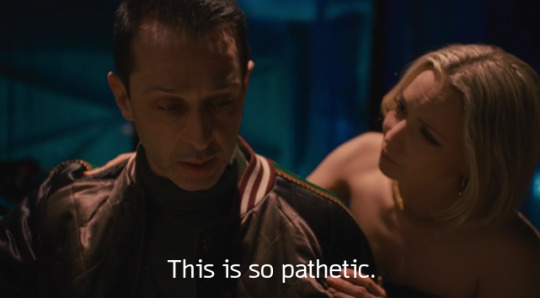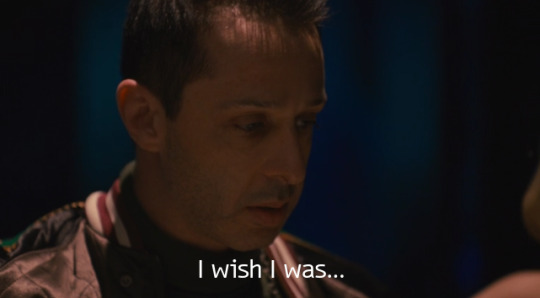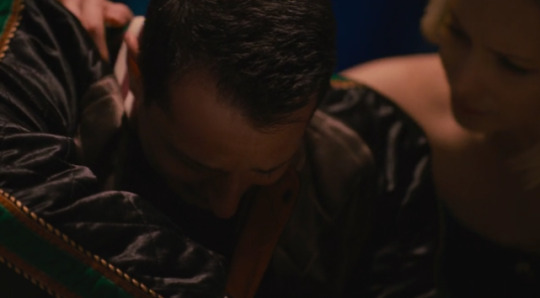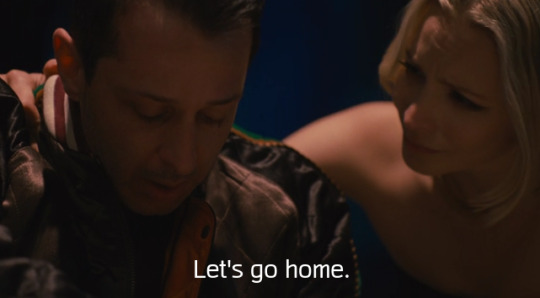Text
Faramir calling Galadriel “the Mistress of Magic” and talking about how it’s better to keep a wary distance from that kind of weird Elvish stuff is 10x funnier when you consider that Galadriel’s most distinctive native ability is her insight into the thoughts and hearts of others.
100 notes
·
View notes
Note
Hii, do u have any headcanons about Boromir and Faramir’s relationship? I find it interesting, as they were close in childhood (I believe the wiki says Boromir was very protective over Faramir??) but also Faramir is quite critical of Boromir later on. I hate it when people make it out as Faramir is perfect and Boromir bad- they’re both complex characters and neither are perfect. So yeh, do you have any headcanons on their relationship as children and how it changed?
OHHH I HAVE... so so many lemme see how well I can describe this.
So, yes, there's this little overview description in the appendices that says when they were children Boromir was 'ever the protector of Faramir'. But the dynamics of childhood siblings and the ones that appear later in life are going to be different, aren't then? Especially as complex opinion and personal morality divide them further.
And also, honestly, I'm not entirely sure Faramir needed this protection. Because essentially what Boromir grew up with was an intense feeling of concern for his family that was heavy enough already when he was very little and losing extended family members to this or that battle, but peaked when he lost his own mother to some complex interaction between Mordor's proximity and her own chronic ill health. I go into that whole aspect of his childhood more HERE but essentially Boromir blamed himself a great deal and was pushed into this feeling of needing to make up for it.
And it also made him slightly obsessive over the health and safety of his family. Hence, he was Faramir's protector. (This is also supported by a letter in which Tolkien describes Boromir as 'bossy' which I do find quite telling.) And little Faramir appreciated this at first! Sometimes it was a bit overbearing, but for the most part having his cool older brother around a lot to stick up for him and to keep him from danger and to help him get whatever he wanted was never going to be a bad thing. Indeed, Faramir became even more confident and outgoing with this foundational Boromir support system than before.
But Faramir also of course had his own issues and hangups surrounding both his mother's death and the doom to the east that was rapidly approaching all of them. I go into more detail about that HERE but again to be brief, little Faramir finds comfort in being angry about the lot fate has assigned him, rather than sad, because it feels more in control. And in order to be even more in control, he leans into his very heightened love of history and books that he and his father share to try and understand his position in the world. This leads him to want to be essentially 'too special to die' like the faithful heroes of old Numenor etc. And with Gandalf's introduction into this complex emotional thicket, he turned that desire into an intense need to be faithful. He has to be THE MOST Catholic essentially, he gets a sense of catharsis and satisfaction from determining where Gondor (and his family) have 'gone wrong' and how tragic and sad that is and how he has to be better than all of them.
This change in Faramir also likely coincides with Boromir's protectiveness going from 'supportive' to 'frustrating'. Faramir feels stifled by Boromir's worry and it gets more aggravating when Boromir is going off to war as Hurin of the Keys (Then Captain-General Hurin) squire and participating in battles of his own volition and against Denethor's wishes before coming home to be worried about how late Faramir is out or something.
So Faramir is starting into that teenage stage of oh my god I have opinions and I have to be so loud and hard line about them in the midst of Boromir's leaving that stage and being confronted even more heavily with the hopelessness of their people, it's a volatile mix. Boromir also, around this point, has accepted that he is gay. It's not such a devastating blow to him but it is also just another difficult little obstacle in him that makes his life harder. He is also navigating the idea of whether or not that makes him ill fated, is he just corrupted on the inside? Is he fundamentally doomed? (Cultural concepts of homophobia HERE) It's not the kind of mental state that needs a little brother's religious convert ramblings about the fall of man and Gondor's failure and the lack of the faithful etc.
So Faramir starts talking like he is fundamentally more wise that Boromir could ever be and Boromir's interactions with the horrors of war makes him more overprotective which makes Faramir more frustrated and incites him to patronise Boromir even more just to antagonise him and... well the vicious circle is started. Not to say that their relationship just obliterates itself of course, they still like each other's company most of the time and Denethor is there to mediate their fights, to ask for Boromir's patience with his younger brother and ask for Faramir's understanding etc.
But they get into a big fight when Faramir says he also wants to be a part of the Military. Because Faramir knows in order to be special and noble and heroic for the times, he has to be a warrior too, no matter how much he resents that fact.
Boromir still doesn't understand why he's doing this, just to be better than he is? (Sort of, but not for the reasons Boromir thinks he's doing it, not for this need to be the best in order to somehow save everyone, because no one else seems to understand.) And doesn't he realise war isn't a game or a competition?
Faramir thinks Boromir just wants to be overprotective again, and also 'claim the glory all for himself' despite how much his brother hates that assumption of him, FARAMIR knows it must be true, must be why Boromir does anything! His grandfather Adrahil told him so (more on Adrahil HERE).
And this one cannot be solved so easily by Denethor, whom is also against Faramir going to war and cannot be quite that impartial, my son there are other ways to defend your people, other needs of Gondor. But Boromir agrees with him too readily and Faramir believes it's just an excuse Boromir is using. Boromir blurts out 'I won't be able to protect you! You could die!' and Faramir says he never wanted or needed Boromir's protection, he can look after himself! And this hurts Boromir's feelings and pride just a bit too much. And he goes quiet and he says fine, do what you want. I will stop protecting you.
The argument is technically over and Boromir hurries to stop feeling hurt or angry or worried about it and turn his feelings stern and apathetic as Faramir is flushed with triumph and drive enough to forget his own hurt and frustration. He also tries hard to forget the fear and heartbreak on Denethor's face as his father realises that, all too soon, he will have to start thinking of both his sons as assets in war, not the soft babies he held in his arms. But it DOES start Faramir's sensation that he has to protect and shield his father from his and Boromir's disagreements, Denethor being so tragic in his eyes, just not up to the task, just not quite masterful or wise enough to understand and lonely without their mother as well. So Faramir extends this patronising care to Denethor too and moves on.
Boromir takes up the mantel of 'Captain-General' when he is 24 after a wildly successful execution of a plan he and Prince Theodred devised to combat the movement of orcs and easterlings into the wastes around the black gate. Many had called it risky, but the pair had ordered the prolonged engagement well and succeeded in driving all hostiles away from North Ithilien. His success and prowess assured the military councellors that he is ready and more than able to accept the position as Warden of the White Tower. At nearly the same time, Faramir enters the Military proper after finishing his own squireship with the Captain of Adrahil's Swan Knights in Dol Amroth (this he persuaded Denethor to agree too for Elphir would soon be ready to come and be fostered by Denethor for his preparation to be the Prince of Dol Amroth after Imrahil and he and Faramir had always been good friends, it would be good for him to have a friend in Minas Tirith so he did not feel too alone or intimidated when he arrived.)
And Boromir was true to his word. He ordered the army as was best for it and specifically did not favour Faramir's companies in safety or comfort. And despite everything, this was a surprise to Faramir. He just hadn't expected Boromir to treat him like everyone else and with the years they had spent away from each other, only sending letters, it was clear that they had both changed and that their relationship now was more strained. The awkwardness did not last long, they still were brothers whom had been too close for too long to stand on ceremony. But they argued more, Faramir saw Boromir more as a political opponent in the field of Gondor's cultural and moral heart, Boromir saw Faramir more as an obstacle to his goals for defending the country and all the while Denethor saw less and less of both of them and grew less and less aware of how difficult their relationship had been growing. He had his own focus after all.
Faramir began very very subtley trying to undermine Boromir's position in the eyes of Gondor's people and her soldiers. This wasn't for any nefarious purpose, he genuinely believed that Boromir was leading them to baser instincts, to less noble goals and that his tactics were, if not barbaric, certainly too 'rohirric' for him. Obviously Boromir countered this and did well enough in the debates and discussions and social events that Faramir or his friends voiced such opinions in, but it was still yet another fight Boromir had to win and it dragged on his energies and patience and cast Faramir in an even less warm light in his mind and heart. In the end, Faramir just made him tired and he did not feel secure in his brother's support of him off the battlefield, even if he knew he was an excellent captain. (Though Faramir also often found ways to circumnavigate his orders into some more noble action that gained his soldier's admiration but made the greater picture of Boromir's tactical maneuverers harder or sometimes just downright unworkable and needing complete rethinks on the fly.) 'Lord Faramir is an equal captain to his brother, he is just less reckless' etc etc.
And this state of things continued for much the rest of their lives. War keeps them distant from each other and slowly wears down their connection until thinking of love for one another is more a frustrating fact of life than a treasured feeling 'god that faramir is annoying but I love him, I can't help it' kind of sensation. That is, until (not weeks before the final attack on osgiliath) Faramir discovers Boromir's secret. The letters he finds are too well ciphered to really discern any details, but two things are clear; they are obviously romantic and they are obviously from a man.
And isn't this just the most aggravating and unjust thing? That still Gondor holds Boromir as 'the best man in Gondor' when he is so ill-fated? So wrong? It is so indicative of Gondor's fallen state, Faramir thinks to himself. But that Boromir should be so weak in the face of his... struggles? Of this burden? It is both vindicating for him but also infuriating. He confronts Boromir about it, it is not so satisfying as he expects it to be. Boromir is icey cold, refuses to engage with his attempts to connect to him, his offers of help, his well meaning chiding, he truly wants only the best for Boromir! Boromir only asks, will you tell the Steward? And Faramir replies no, I wouldn't do that to him, he has enough to worry himself. And this at least, Boromir agrees on.
And somehow to Faramir's annoyance the whole subject is dropped in favour of sudden war. Dreams and the loss of bridges and such pyrrhic victories that cost so much and nearly see his own death, it all just twists into his own sense of frustration and 'specialness' that he can't believe Boromir is sent on the quest. If Faramir were only to reveal what he knows to the council, the one fact that would clearly make him the better candidate than doomed Boromir... but it would be too much a shock for his father and too sorded a debate for Faramir himself to be involved with, especially at such a time of war (and Faramir is not unheeding or careless of such things, Gondor needs a sturdy defense and this would undermine confidence too readily.)
But in the end, he does come privately to his father. And he tells him, with gentleness and concern, what he knows. Denethor is silent and his face that unreadable mask it often becomes, and eventually he tells Faramir to leave as he needs to think. Faramir is as understanding as possible, he knows it's a shock. And yet he is not recalled and Boromir leaves Minas Tirith the next day at dawn and he does not say farewell to his brother.
It is only much later, after many months of he and Denethor working together in Gondor's defense, that he finds out Denethor is angry at him. Angry for the way he treated Boromir, for what he calls a lack of care. He is also angry about his concealing of his and Boromir's troubles, for the lack of trust and communication he has shown his father (but also his colleague in war now, their cooperation so vital in these times). But Faramir was doing all of this FOR his family! They just refuse to see the truth of it all, of their fallen state! If only they would listen to Gandalf and to him! But no, Faramir feels like his care has been rejected and his resentment for all this only grows, until he finds two hobbits in the woods. He realises almost gleefully that Boromir had failed, he had seem him dead and heard the horn and now he realised that Boromir had been judged and found wanting. Now he had an opportunity to succeed where Boromir failed. But he has to make sure these hobbits know that, to know he is better, special. He just wishes his Father could see it too.
76 notes
·
View notes
Text
I’m sick and in bed and that means I get to be mean to Faramir. SO! Whenever the topic of his character comes up (who he is as a person and what he values etc) the only quote from him people ever seem to use is the ‘I love that which they defend’ schpiel, despite Faramir having… A LOT MORE quotes about his worldviews than just that one. But fine! Let’s talk about JUST THIS one quote and how it reflects on Faramir.
The quote (as used in gifsets, fanfic and artworks) is written thus; ‘but I do not love the bright sword for its sharpness, nor the arrow for its swiftness, nor the warrior for his glory, I love only that which they defend.’ The assumption being that ‘that which they defend’ is referencing the people of Gondor, thereby affirming Faramir as a pacifist who loves his people, yes?
But the thing is no one needs to make assumptions about what ‘they defend’ means, that quote is cut off mid sentence! It ACTUALLY continues; 'that which they defend: the city of the Men of Numenor; and I would have her loved for her memory, her ancientry, her beauty, and her present wisdom.’
See here, Faramir isn’t talking about the PEOPLE he and his soldiers are defending. The population of Gondor and indeed Middle Earth at large that is being defended in Gondor’s perpetual war is a complicated mix of ancestries that include the middle men Faramir later despairs of emulating. They are certainly not all part of ‘the men of numenor’ nor are most at all invested in Gondor’s ancientry etc. He is talking about the political entity of Gondor as a remnant of the lost Numenor that he so idolises and the history it represents. It is a nationalist sentiment.
To Faramir, 'glorifying war’ (as he perceives it) is an aspect of lower men, of lesser culture, not befitting high men. Not going to war mind you, it is just the glorification of such that he despises, the fact that it is a necessity of these times that warriors are lauded; “For as the Rohirrim do, we now love war and valour as things good in themselves, both a sport and an end; and though we still hold that a warrior should have more skills and knowledge than only the craft of weapons and slaying, we esteem a warrior, nonetheless, above men of other crafts. Such is the need of our days.”
It is already dismissive and callous to ascribe a LOVE of war to the Rohirrim, who appear just as aggrieved by loss and suffering as anyone, but what Faramir calls ‘love of war’ is really just the preparedness for it and those who respect others for that preparation and practice. The Rohirrim have never gone to war as a sport. He means duelling, wrestling and encouraging people to learn to defend themselves because as he says! ‘Such is the need of our days’.
But those things, to him, are uncivilised, the mark of “we too have become more like to them [the Rohirrim], and can scarce claim any longer the title High. We are become Middle Men, of the Twilight, but with memory of other things.” So Faramir, in his claim of not loving a sword for it’s sharpness etc, is distancing himself from those men, showing in fact a callousness for the people he protects, holding idealised concepts of racial superiority and nationalism over defence.
Denethor accuses him of just this! 'your desire is to appear lordly and generous as a king of old, gracious, gentle. [-] but in desperate hours gentleness may be repaid with death [-] with the death of your father and of all your people whom it is your part to protect’. Notably, Faramir replies, 'So be it’.
Anti-war sentiment is fine! Yes war is bad in general and shouldn’t be entered into lightly. But the message in LotR is not so simple and specifically Faramir’s reasons for being anti-war-GLORIFICATION are not so selfless or noble as people like to believe. The war in LotR is not some political mess organised by higher powers and forcing those lower than them to suffer for their inscrutible machinations, it is a war of necessity in defense against (as Faramir puts it) “a destroyer who would devour all.” The wars that were for self gain and expansionism were what enriched Gondor and allowed it to become the ‘Queen among Queens’ that Faramir is yearning for. How can one be anti-war and yet idolise the colonialist Gondor of history? You can’t.
The Gondor of old that is ’feared only as men may fear the dignity of a man, old and wise’ that Faramir wants to emulate does not exist and Gondor’s beauty was always supported by its King-lead military conquests to the east and south. But Faramir still wishes 'the silver crown return’, for the King to come again and for this to somehow return his country to it’s former glory. Only under the Steward’s rule were Gondor’s borders receded by design, and under Aragorn it proceeds to 'subjugate the South’ once more. Minas Tirith is certainly at peace in the future however, it does not see siege or desperate battle again, which is the peace Faramir is looking for, 'Minas Anor again as of old, full of light, high and fair.’
So! Faramir is not Anti-war, nor does he love his people. Faramir resents the loss of the illusion of a wise paternalistic Gondor 'queen among queens’ that does not have to bother with such lowly pursuits as war for the sake of self preservation and the praise that comes with it. HE LOVES ONLY THAT WHICH THEY DEFEND! (The great history of passive and magnanimous Gondorian supremacy that he has made up in his own head) I am so dizzy and my heart is beating way too fast I hate being sick adieu
222 notes
·
View notes
Text
Tolkien news twitter accounts are personally victimising me with their news and their images so I’m going to take it out on Gandalf’s reputation and, uniquely, make a Faramir-sympathetic post.
So you are Faramir, you are about nine or ten and you are suffering existential dread. No matter how much your father and brother try to ease you into life, the realisation of this oncoming doom is weighing on you. And as you get a little older you are angry. You are angry about many things, you are angry that your mother is no longer here, because being sad feels less in control than being angry. You are angry because you feel helpless and inconsequential when this doom is coming for you and even your masterful father cannot stop it. That angers you as well, you almost feel betrayed, because your father is so masterful and yet he could not save your mother and he cannot stop this doom from befalling your home. You are angry because fear is too vulnerable and all you want right now is to feel in control.
So you read and use your voracious little mind, your unfathomable curiosity and your father’s vast knowledge to build this armour of expertise and understanding around yourself. You want to be wise, deep down you want to be special enough not to die, enamoured with ancient historical tales as you are. Perhaps you will be a hero, not like Boromir (he is the type of Hero who dies, this fact twists you up into anxious frustration so you try to ignore it) but like Earendil or Elros or some other great and wise king of old.
And then you run into a man. And he is ill tempered and speaks to you unlike others do and says things that others do not say. He is wise though, he knows a great deal, far more than you. And after that first meeting you spend a good deal of time with him. He tells you not to tell your father, for Denethor does not understand ‘but I think you will young Faramir.’ And oh that is so good to hear, you want to be better than your father, to save him! To save everyone! And Mithrandir (the name he tells you) encourages you, ‘yes Faramir perhaps you might do some great good, we can never know what will come and to assume you do know is presumptuous. Things will be as they are, all we must do is our appointed tasks to the best of our ability.’ This Faramir does not like at first, but in speaking with Mithrandir he does begin to feel better, to feel special. He knows the old man is a wizard, he knows he is not as he seems and Mithrandir often tells him he is different from his family, different from proud Denethor and reckless Boromir. They don’t understand but I think you will Faramir, in time.
Mithrandir leaves, he does not say goodbye to you but you had a feeling he would be leaving when you last spoke. You still don’t tell you father, you had seen the way Denethor and Mithrandir spoke, there was obviously great animosity between them. But you do tell Boromir at one point, wanting him to know, wanting a specific response from him, wanting him to be impressed. You ask him if he knows the wizard. Boromir says ‘Mithrandir? Yes he came to speak with me a while ago, when he was last here. I did not like him very much, he was rude and pompous and overly mysterious. I eventually told father and he did not bother me again. Why, is he bothering you?’
Faramir says no, he just wondered, but he is shocked. A fear creeps in, a fear he is not special, that he had been chosen as second best. But he is not willing to give up this surety and so he dives into Mithrandir’s words, he decides he will rise to Mithrandir’s expectations, he will deserve his lofty attention. And he becomes more combative too. He is seventeen and he argues with his family, he argues they have lost their way, that all of Gondor has lost it’s way, has forgotten too much. Denethor doesn’t need Faramir to tell him about his meetings with Mithrandir anymore. But he also can do nothing. To forbid Faramir from seeing Gandalf would only confirm everything said and make Faramir into an even more determined pupil.
So it is accepted. Denethor simply speaks with Faramir more, they debate each other more stridently but every flaw in Faramir’s logic has conveniently shaped faith to fill it. At least it is no longer a secret and Faramir still feels welcome and belonging amongst his family.
Mithrandir only comes to Minas Tirith twice more, once just before Faramir’s rise to a Ranger of Ithilien and again when he needed to look into Denethor’s archives. That last time he did not stay long. And Faramir missed him, he wished he would stay longer and say more to him, give him more understanding of his appointed task. Men call him charmed and blessed now, luck seems to go with him and he holds onto it awkwardly but fiercely. Perhaps he is special?
And so, when Mithrandir arrives in the midst of doom, death near at hand, Faramir cannot help his anxious looks across the table at him, desperate to ensure he is not speaking too much to Denethor, that he is fulfilling his task properly. Boromir is dead, as Faramir knew he eventually would be, reckless overproud Boromir who would not listen, just as Gandalf said. And now he is not a child, now death holds a different flavour than when he was little. Now it just needs to have meaning, he has to be right, he has to have done everything right and through his nobility and rightness some good will come of it. And that rightness is mixed now with a sense of patronising superiority, almost bitter. If you all had only listened, the end could have been different. He does not want to ride out, they will die anyway, what will be will be, better to await in this ancient city than to keep presuming we can predict and change the future.
And when he lives? His father is dead, just as he had expected, but he is alive. He sees Aragorn and knows he is the reward for his faithfulness. He has hope suddenly, because he was special, he did survive and now they all will. He may be a man grown but this does feel like a story and now there should be a happy ending! So he thinks nothing of the fact that Aragorn will not accept the crown from him, the crown he had to go to Rath Dinen to get, to pass by the rubble left of the Steward’s crypt. He gives it to Gandalf and Gondor has a King.
And years later, when Gandalf is long gone without saying goodbye and Faramir is feeling some hollow way, he finds himself thinking of his father holding his hand and weeping as he wished for Faramir to speak one last time. He thinks about how he dismissed every other need, left the city’s defense (Denethor’s purpose in life, his foundational duty) just in case Faramir might awaken and speak to him. He thinks about how those bare words from him had been more important to his father than Denethor’s task, his whole meaning, the city he had been defending and the duty that had been their forefathers for a millenia, Faramir’s delirious mumbled words had been more important to him than all of it. And Faramir thinks once again about how Gandalf did not say goodbye. He finds he doesn’t know what to do with these things.
121 notes
·
View notes
Text
People will really be like ‘Faramir was always compared to Boromir and therefore it’s totally reasonable for him to use his death to expound on how much worse Boromir was than everybody thinks’ when like the three times Faramir could be said to be compared to Boromir are;
- The people of Minas Tirith whispering about how both Faramir and Boromir are good captains but Faramir is less reckless so… in his favour.
- A comparison he actively requested in an effort to deflect from having to answer a perfectly reasonable and genuinely worried question from his father about whether his intractable beliefs of nobility were eventually going to get him killed.
- A whole conversation where HE compares himself to Boromir and declares he is the far better brother.
Like I cannot express to you enough how Faramir is the one who architects situations where he is compared to Boromir and the only time that comes out not in his favour is when it’s a completely accurate assessment, Faramir IS fully not communicating with his father because he wants to do what Gandalf wants him to do when they are literally at war right now. Like… I promise you I swear to you Faramir can be annoyed at his brother and a little callous without being abused, I promise war and despair and differences in personality and perspective are more than enough to account for all of this and in fact fits far better in with all the dynamics we see thoughtout the Steward’s family in the books.
52 notes
·
View notes
Text
ok besties I’m too sleep deprived to focus on Important™ things, I’m going to read a Tolkien paper to wake up. Which one should I read and give my sleep deprived ‘opinion’ on, taking votes now;
Whiteness, medievalism, immigration: rethinking Tolkien through Stuart Hall Lavezzo, Kathy
“This essay rethinks Tolkien’s scholarship and fiction in light of his rejection at Oxford of Stuart Hall, who approached him regarding graduate work on William Langland. I argue that Tolkien’s white medievalism contains his most deeply felt racist formations, which both shaped his fiction and informed his life in a university town populated by West Indian immigrants. After examining Tolkien’s essentialist approach to medieval study, I examine how Tolkien believed that his innate knowledge about his ancestors’ language and myths enabled him to create a national mythology, and how his fiction depicts its heroes’ inheritance of their ancestral tongue and temperament. I then consider how Tolkien’s supposed memory of an Atlantis-like disaster befalling his ancestors may have intersected with his rejection of immigrants like Hall. I conclude by discussing how, while Tolkien’s epic fantasies may be appropriated successfully for various ends, they present unique challenges for a significant component of Tolkien’s readership, medievalists.”
or
William Morris and the Counter-Tradition of Materialist Fantasy Murphy, Timothy S.
When William Morris’s importance to the evolution of fantasy literature is acknowledged today, it is almost always in terms of his influence on J. R. R. Tolkien’s Middle-earth series. But beyond their common fascination with the Northern European sagas and shared dislike of mechanized modernity, Morris and Tolkien bequeath very different legacies to fantasy; indeed, they stand at the heads of two divergent traditions that have fractured the fantasy genre for more than a century. The bourgeois Catholic Tolkien exemplifies the idealist or transcendentalist strand that has come to dominate the fantasy publishing marketplace and popular perception of the genre, both for better and for worse, while the socialist atheist Morris inaugurates the demographically and economically subordinate but conceptually more fertile strand of materialist fantasy that runs through the innovative works of William Hope Hodgson, Edith Nesbit, Michael Moorcock, Ursula K. Le Guin, Samuel R. Delany, and China Mieville.
32 notes
·
View notes
Text
Here’s how I feel about Aragorn like, ‘Gondor needs a king' ? false, meaningless, royalist propaganda HOWEVER… 'Denethor needs a friend' ? effervescent. undeniable, tender, better in every way, canonically supported, all he had to do was stay!!!
59 notes
·
View notes
Text


Alain Delon (22) photographed in London by John Barrington, 1957
292 notes
·
View notes
Text
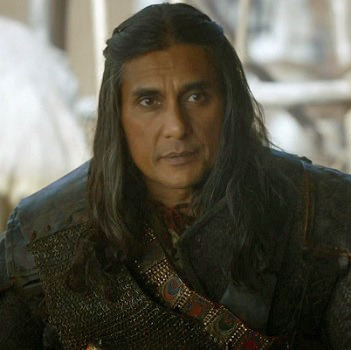
6 notes
·
View notes

